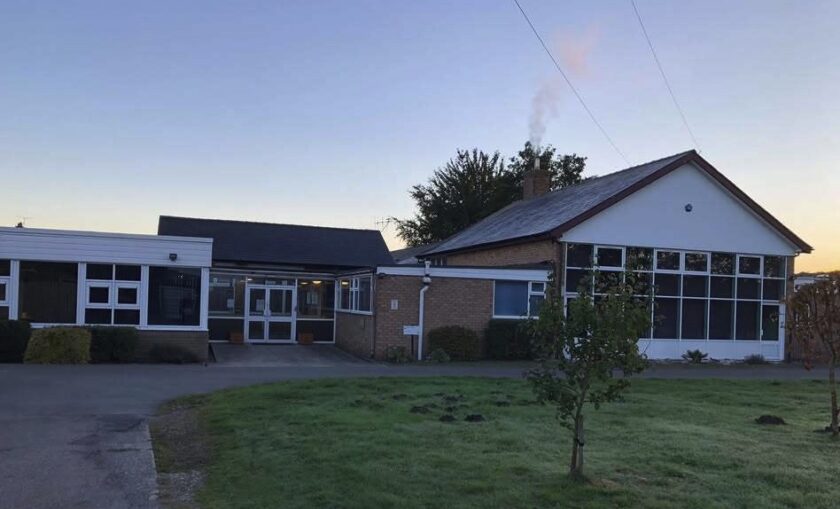Protest planned in Mold over St David’s School closure threat

A parents action group is planning a protest march on Saturday to highlight its campaign to save a catholic school in Mold from closure.
St David’s School Action Group – a collection of parents and supporters of St David’s Catholic Primary School – will march from the school site on St David’s Lane to the Daniel Owen Centre at 11am on Saturday, May 3.
Along the way they will be highlighting 10 key reasons to save the school in an effort to boost support for their cause.
Flintshire County Council’s cabinet has now confirmed the opening of a consultation into the proposed closure of St David’s and St Anthony’s plus St Mary’s Catholic Primary and St Richard Gwyn Catholic High Schools in Flint – by the council and the Diocese of Wrexham to create a £55 million catholic super-school in Flint for pupils aged 3-18.
The land at both St Anthony’s and St David’s would be sold to help fund the Diocese’s contribution to the new building.
St David’s School Action Group’s reasons to save the school are:
- Population growth – there are 329 new homes planned near Mold which will increase demand for school places.
- Transport and safeguarding – they are concerned that children as young as four may need to catch the bus to Flint.
- Overcrowding – existing schools are full or lack wraparound care, meaning surplus places at St David’s will be needed by the community.
- Local demand is rising.
- Environmental cost – increasing transport and emissions by travelling from Mold to Flint is a step backwards for sustainability.
- Fewer options for future families – there is no planned capacity for families that move to the area or grow.
- Value for money – St David’s is operating within its budget according to the group.
- Inflated repair costs – It was recently revealed that a £148,000 repair and maintenance figure used to justify the plans at St David’s were incorrect, with the school requiring £90,000 of works.
- Quality and inclusion – The most recent Estyn report said the school was proven to be welcoming and neurodiverse-friendly.
- Catholic faith education demand – The group claims there are more catholic baptisms in Mold than Flint or Saltney, demonstrating a growing need.
The group has also claimed that Flintshire County councillors were given a false impression that St David’s was underperforming in a report recommending its closure.
Rated ‘Good’ by Estyn during its most recent inspection in 2020, a Flintshire Council report supporting the plan to close St David’s suggested the school’s recent performance was a concern.
It included the statement: ‘more recent monitoring by the council has identified some areas of concern so the school is now subject to an enhanced level of support and intervention to maintain standards’.
The same claim was made about St Anthony’s Catholic Primary School in Saltney, which was rated ‘Good’ at it’s last Estyn inspection in 2019.
“This enhanced level of support does not relate to the teaching and learning within the school, but was a provision made by the county to support schools in specific ways,” said a statement from St David’s School Action Group.
“At St David’s it followed a period without a full-time headteacher. The school made strong improvements and advances by its own efforts and those of the staff and governors working together. Any monitoring visit has indicated successful improvement in those ‘areas of concern’.
“It is to be regretted that the cabinet was not informed of the basis of the ‘extra support’ and that a false impression may have been formed as to the quality of teaching and learning, the care, and overall good education at St David’s.”
A Flintshire County Council spokesperson said: “It should be noted that full Estyn inspections of schools only take place every six years, during which time a school’s performance can obviously change.
“The local authority has a statutory responsibility to ensure that all of its schools deliver a high quality education offer that ensures learners achieve their potential. This is a continuous process undertaken by very experienced local authority officers and partners in the regional school improvement service through their very regular engagement with Flintshire schools and covers a range of monitoring and engagement activity.
“It is undertaken in constructive partnership with the headteacher and school staff. Where areas of improvement are identified, the school receives additional support through enhanced actions plans and the effectiveness of those plans are monitored through regular meetings between the local authority and the school.
“When the school has made sufficient progress and the local authority is confident the school can maintain its progress independently, these action plans and any extra support are withdrawn.”
By Alec Doyle – Local Democracy Reporter
Spotted something? Got a story? Send a Facebook Message | A direct message on Twitter | Email: [email protected] Latest News








